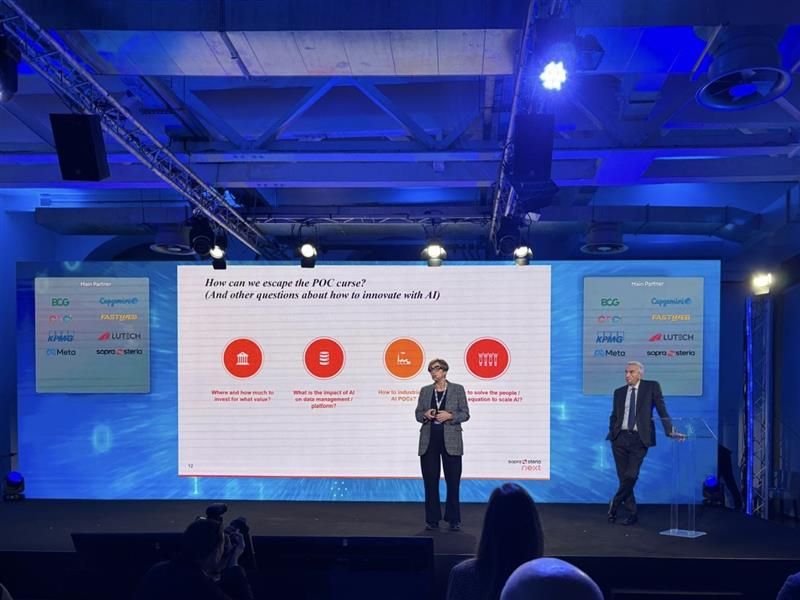
Top Ten Things – Artificial Intelligence is rapidly transforming global industries. In Europe, the DACH region—Germany, Austria, and Switzerland—stands out for its momentum. AI development here isn’t accidental. It’s driven by layered support, from education to policy. Companies like Unit8 and partnerships with OpenAI lead this wave. Besides that, academic institutions and industry giants fuel the demand. As a result, DACH attracts talent, investment, and influence. The region’s AI strategies balance innovation and regulation. Government initiatives also encourage inclusive and ethical technology. Let’s explore ten key reasons behind DACH’s rise as an AI powerhouse in collaboration with Unit8 and OpenAI
The DACH region is home to some of the most advanced universities globally. ETH Zurich, TU Munich, and Vienna University of Technology consistently produce top AI talent. Furthermore, academic programs are aligned with market needs. Students gain hands-on experience through partnerships with leading tech companies. Therefore, the transition from classroom to real-world applications happens quickly. These institutions also emphasize interdisciplinary research, combining AI with ethics, biology, and engineering. Consequently, innovation doesn’t occur in silos but across sectors. This strong education-to-industry bridge attracts international researchers and students.
Governments in the region take AI seriously. Germany has committed over €5 billion in its AI strategy. Similarly, Austria and Switzerland have introduced national AI roadmaps. These strategies support startups, research, and public-private partnerships. In addition, regulations in DACH focus on ethical frameworks. Policymakers ensure that AI applications remain transparent and accountable. Because of this, public trust in AI adoption remains high. This structured support enables consistent and responsible growth in the tech sector.
“Read About: 2025 Top 10 Car Lineup: What Auto Fans Are Excited About”
Germany’s automotive and manufacturing sectors are integrating AI aggressively. Companies like BMW, Bosch, and Siemens use machine learning in production lines. Predictive maintenance, computer vision, and robotics are no longer experimental. Moreover, AI is embedded in logistics, energy, and finance. This large-scale industrial adoption provides constant feedback loops. Therefore, AI solutions are refined in live environments, not just labs. This loop between real-world data and iteration boosts reliability and performance.
Unit8, based in Lausanne, is a pivotal force in operationalizing AI. It helps major corporations adopt AI beyond proof-of-concept stages. From pharma to banking, Unit8 translates models into measurable outcomes. Its strength lies in combining engineering rigor with business impact. Through workshops, audits, and agile development, Unit8 accelerates AI maturity. Its reputation for reliability attracts multinational clients seeking fast results. Also, its strategic partnership with OpenAI opens new AI horizons for DACH.
With access to OpenAI’s models like GPT and Codex, DACH companies now tap into advanced generative AI. These models enable automation in customer support, document generation, and code completion. OpenAI’s language tools suit the region’s multilingual needs. For instance, businesses in Switzerland leverage GPT to communicate across German, French, and Italian markets. This practical application boosts customer engagement and internal efficiency. Through Unit8, enterprises deploy these tools responsibly and securely.
One of DACH’s key strengths is linguistic and cultural diversity. AI models must handle German, Swiss-German, French, and more. Because of this, DACH developers emphasize adaptability from the start. Localized training data and domain-specific models improve accuracy. Businesses also require sentiment analysis and NLP tools tailored to their audience. This linguistic complexity sharpens the region’s AI capabilities faster. It also ensures scalability for international clients.
Berlin, Zurich, and Vienna are rapidly growing startup hubs. The DACH startup ecosystem receives tax incentives and public grants. In addition, incubators and accelerators like ETH AI Center provide critical early-stage support. Many startups focus on niche AI areas like legaltech, medtech, and green AI. These smaller firms collaborate with corporations, fostering knowledge exchange. As a result, innovation remains decentralized and diverse. This makes the AI ecosystem more resilient and experimental.
Ethics play a foundational role in DACH’s AI adoption. From data governance to algorithmic transparency, organizations implement guidelines early. Universities and NGOs host public discussions around bias and privacy. Furthermore, the European Union’s upcoming AI Act influences DACH regulation. Thus, companies design systems that meet both legal and moral expectations. This preemptive approach helps avoid future compliance risks.
DACH’s AI success is rooted in cross-sector partnerships. Pharma companies work with tech startups to accelerate drug discovery. Energy providers use AI to optimize grids in real time. These vertical integrations multiply the impact of every innovation. As industries merge AI with legacy systems, transformation spreads. Therefore, change doesn’t occur in isolation—it becomes system-wide. Unit8’s involvement in multiple sectors accelerates this synergy.
Lastly, the region’s central location in Europe strengthens its global access. DACH companies serve clients across the continent and beyond. Additionally, Zurich and Munich are seen as stable hubs for tech investment. This perception encourages venture capital and international partnerships. By aligning technical capability with strategic geography, DACH holds a competitive edge. Its blend of trust, innovation, and talent positions it to lead globally.